Volunteer Management Software
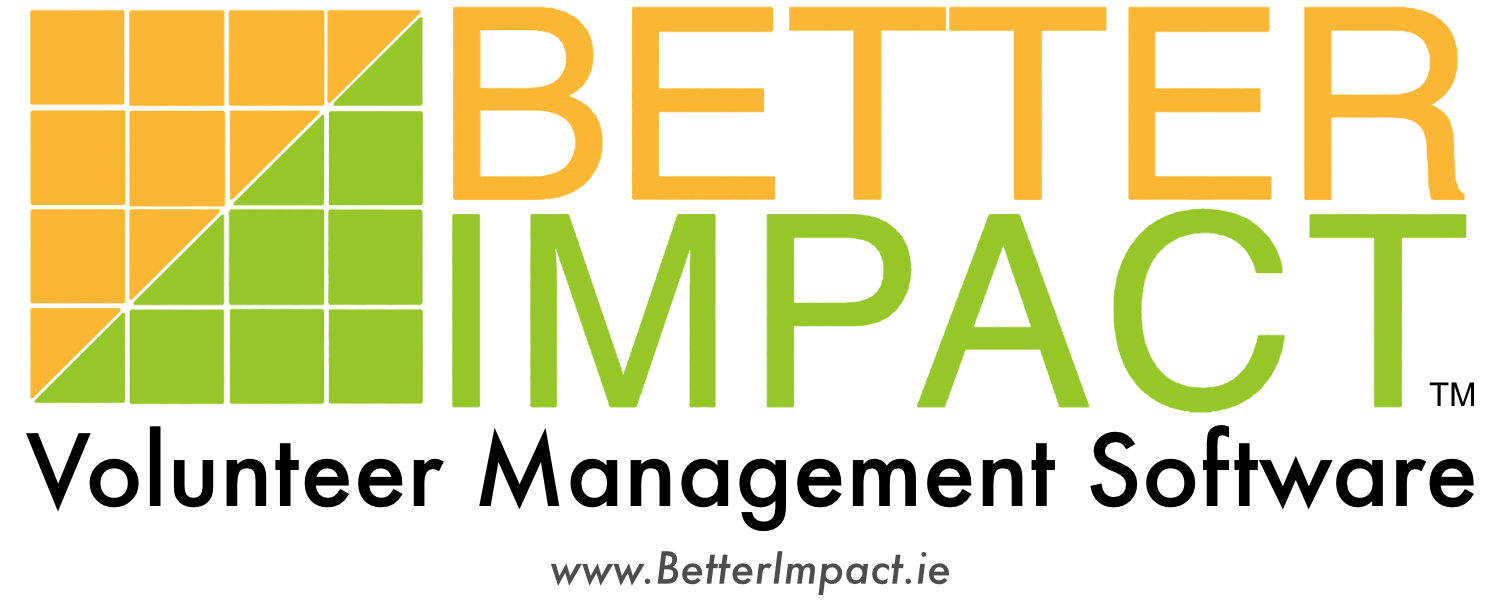

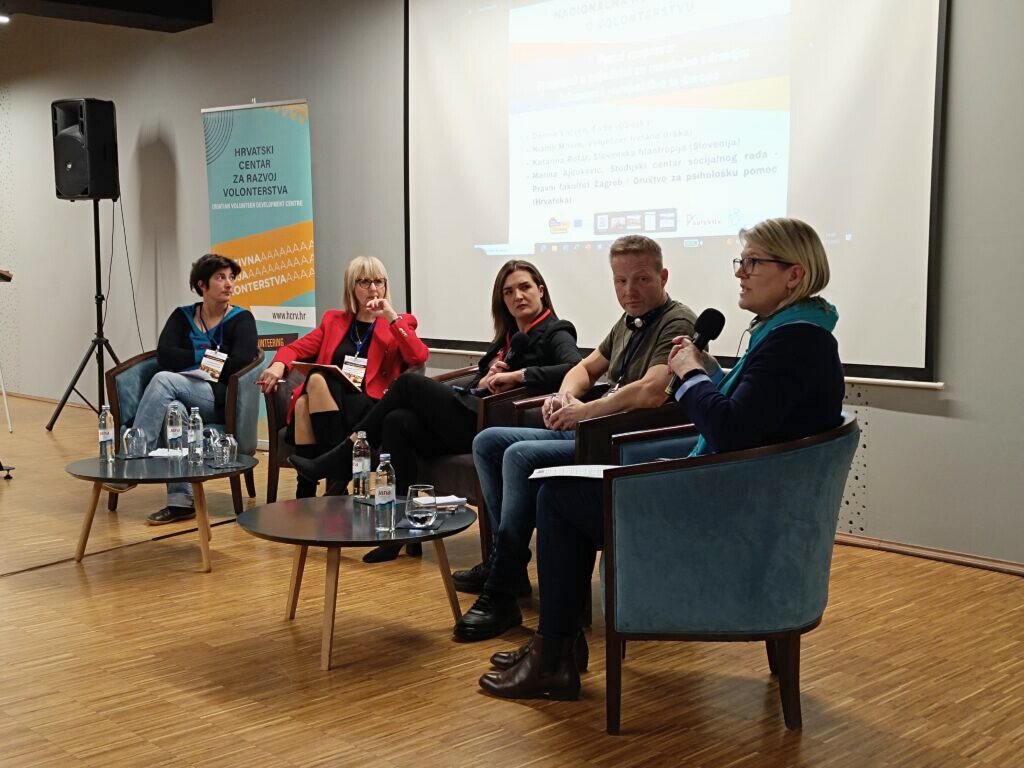
Powerful conversations on loneliness, learning from innovative volunteer involving organisations, and presenting new work at a conference
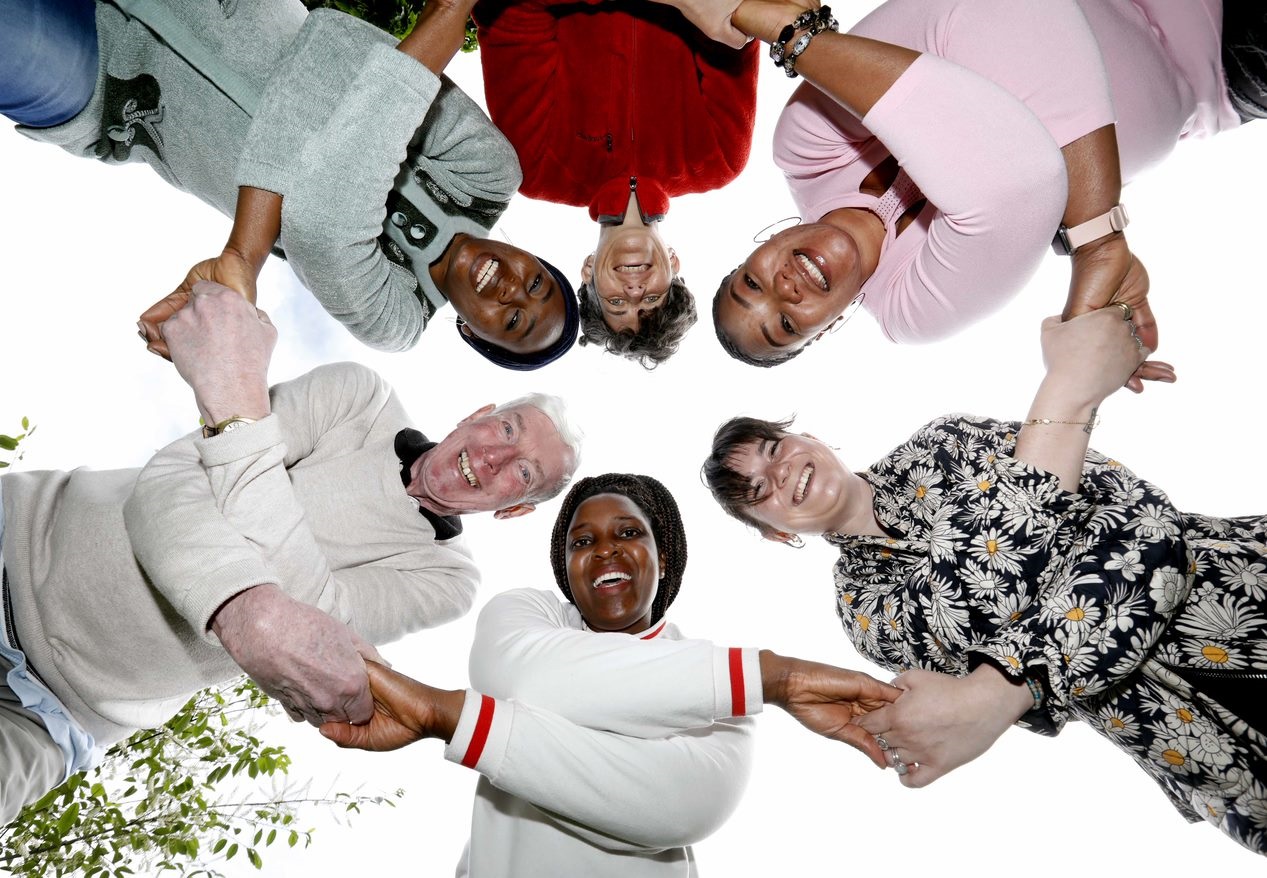
Volunteer Ireland’s Learning and Capacity Building Manager, Stuart Garland, shares the benefits of creating an inclusive volunteering programme.
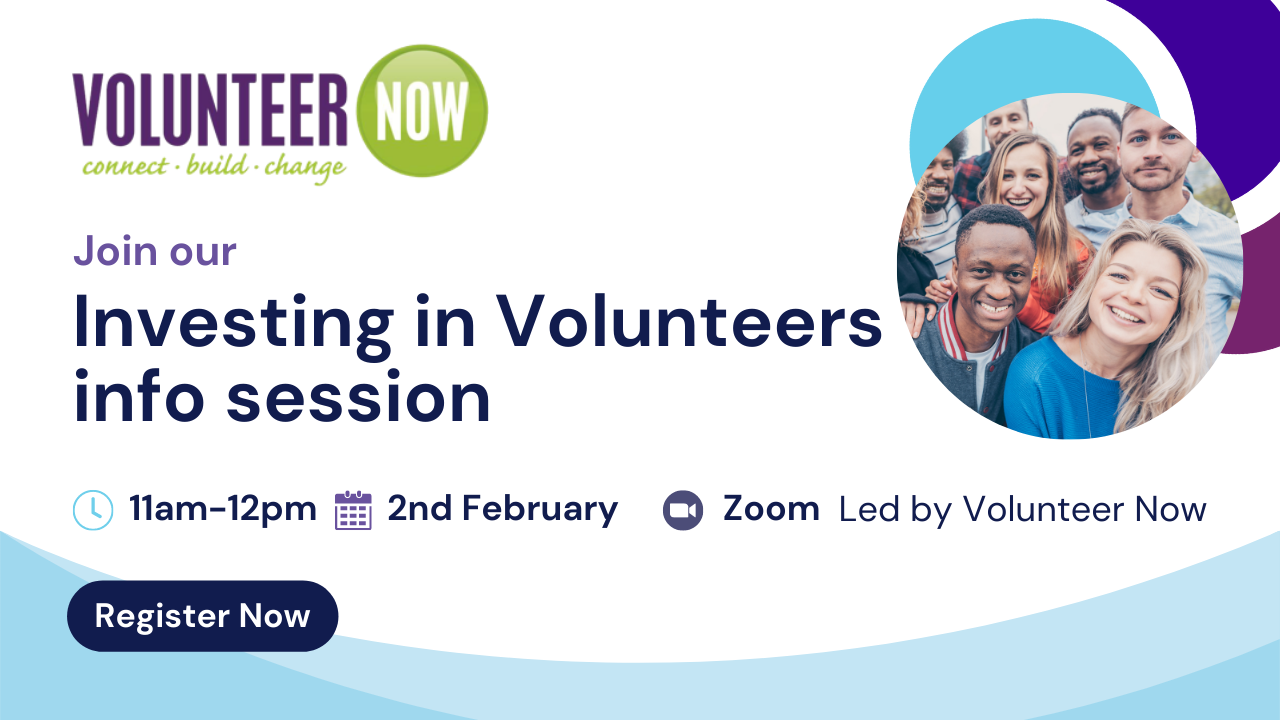
Join Volunteer Ireland and Volunteer Now for an info session about ‘Investing in Volunteers’ accreditation. Online session takes place Thursday, 2 February 2023.
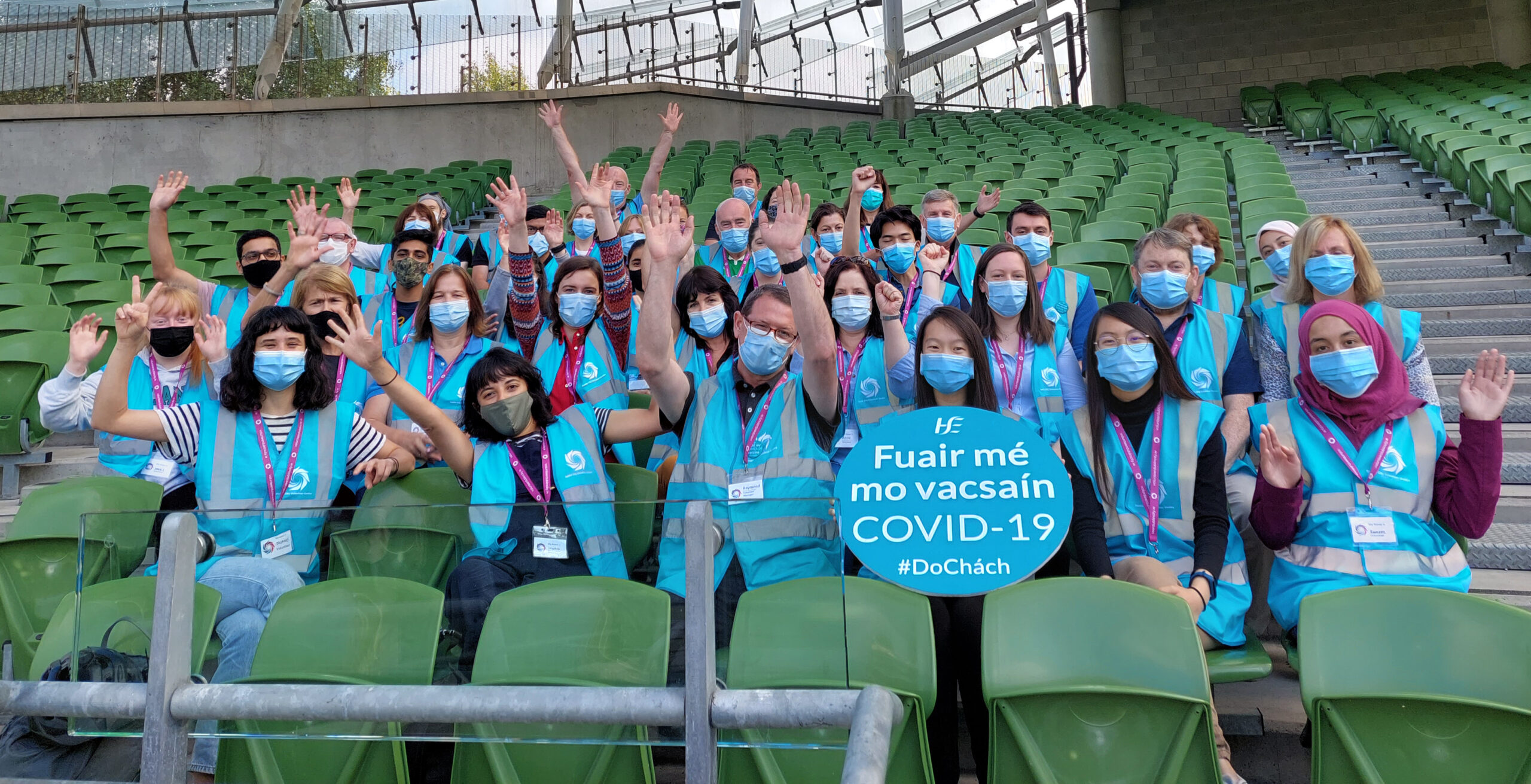
A look at what’s happened in volunteering during 2020-2021 and the impact it’s had on volunteer engagement today. By Stuart Garland, Learning and Capacity Building Manager at Volunteer Ireland.

An International Volunteer Managers’ Day update from Stuart Garland, Volunteer Ireland’s Learning & Capacity Building Manager.
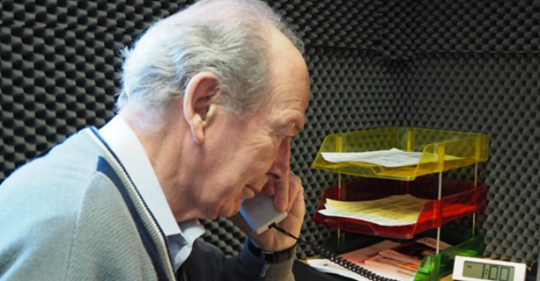
 Damian Leneghan is the Programme Manager with SeniorLine, a confidential listening service for older people provided by trained older volunteers. Here he tells us how COVID-19 has affected their service and how they have adapted their volunteer programme.
Damian Leneghan is the Programme Manager with SeniorLine, a confidential listening service for older people provided by trained older volunteers. Here he tells us how COVID-19 has affected their service and how they have adapted their volunteer programme.
Tell us a little bit about SeniorLine and how you engage volunteers generally.
Usually we have 178 SeniorLine volunteers, all older people themselves, who answer the support line in 3 hours shifts in one of our 3 Dublin locations. They answer calls from older people on a range of issues including: loneliness, bereavement, suicide, elder abuse and family conflict among other things. Each volunteer does one shift every 3 weeks and always work in pairs meaning that 2 volunteers are on duty at each centre at any time. Volunteers received 5 days of intensive training, have support materials with them on shift and always have the ongoing support of SeniorLine staff.
How has COVID-19 affected how you manage your volunteer programme?
The biggest impact on our programme has been the need for all of our volunteers to do their shifts from home. Luckily, we already had a ‘work from home’ system in place for holiday periods which allows us to use a platform to redirect calls to volunteers at home. Now we have had to move to using this system full time until we get back to normality. We offered the option to all of our volunteers and 109 of them signed up to volunteer from home. This has been brilliant as it means we can still deliver our service but it does involve more work and higher costs on our side.
Volunteers working from home naturally require more support. Volunteers now receive updates twice daily from the Programme Manager via text. It means we can provide that extra support and keep the lines of communication open, although the use of a bulk testing service has increased costs considerably.
How have your volunteers handled the change?
One of the biggest changes from the volunteers’ perspective has been the loss of the social side of volunteering and the support that volunteers provide each other. However, all of our older volunteers have been amazing! Although some were apprehensive and there were a few tech teething errors, everything has been running relatively smoothly. We call each volunteer after their shift which gives them great support – according to them! Our volunteers are themselves older people – the vulnerable group, cocooning, having shopping delivered to their homes, isolated and so on– and yet they are offering their time and experience to their peers – it’s great!
What advice would you give a volunteer manager who has never engaged volunteers virtually/from home?
The most important thing to remember is to keep connected. Give volunteers extra support, call them after their shift, have regular check ins. Never assume all is ok – always ask how they are. It’s also vital make sure volunteers are very clear about their boundaries when at home – their safety and security is priority. And as always, preparation is key. Do a risk assessment and identify how volunteering from home is different than in an office and make it as supported an environment as possible.

Emma Barnes is the Training and Recruitment Manager with Aware, a national charity that provides support and education for those experiencing low mood, anxiety, depression or bipolar disorder. Here she tells us about managing a team of volunteers across four services and how they have adapted to COVID-19.
Tell us a little bit about Aware and how you engage volunteers generally.
Aware is a national charity that supports people experiencing low mood, anxiety, depression or bipolar disorder. We have four services supported by volunteers; a support line, local support groups, a support email, and the Life Skills Online programme. The latter two services are delivered virtually by volunteers although in person training still takes place before volunteers take up their role. The support helpline is delivered from our offices in Dublin 4 while local support groups take place around the country.
How have you adapted your volunteer programme since the onset of COVID-19?
We were actually in the middle of training a new intake of volunteers for our Life Skills Online programme and our support helpline when the restrictions began. We had to adapt very quickly and within days we had moved the training online. As we had a big group of volunteers, we split them into smaller groups of 10/15 volunteers and completed the training through Zoom. We are lucky that given the nature of our roles, our volunteers are quite tech savvy so most of them adapted quite quickly.
We have changed the helpline to work through an app on volunteers’ mobile phones – all secure and encrypted – so they can take calls during their shift while at home. We have made the importance of shifts very clear – if a volunteer is on for a three hour shift then they finish when the three hours is up. When you’re fulfilling your role at home, the lines between ‘on’ and ‘off’ can become blurred so we have been very clear about maintaing boundaries.
Have you faced any challenges adapting your volunteer programme?
For some volunteers, particularly those who don’t typically deliver our online services, technology has been a challenge. In these cases, we offered extra support to help the transition but in some cases the volunteers felt it was best to wait until things are back to normal to continue their role. This is completely fine and we have engaged these volunteers in other ways by asking them to spread the word about our services online and by word of mouth.
Another challenge has been to ensure we are looking after our volunteers’ mental health. As a society, we are all going through something quite difficult and unprecedented so it’s critical we are minding the mental health of our volunteers as well as our service users.
We have created a ‘buddy system’ whereby a more experienced volunteer will check in with a volunteer at the end of their shift to see how they are, how they got on and if there were any challenges. This is really important as one of the most enjoyable aspects of volunteering for many is the social side where they make connections with other people – this doesn’t replace that but ensures the volunteer feels supported and connected.
Do you have any advice for anyone trying to manage their volunteer programme remotely?
Communication is key. There are lots of different ways to engage volunteers remotely but it’s vital to be clear about what you’re asking them to do and how they’ll be supported throughout the process. Ensure they’re comfortable with change but if they’re not, make sure they know it’s ok to opt out. And that they there is a place for them when everything returns to normal.
Be clear about expectations and boundaries. Make sure volunteers don’t take on too much and encourage them to practice self care. This is a trying time for everyone and people are so willing to help in any way they can. As volunteer managers we have a really unique job in harnessing that spirit, engaging volunteers effectively and making sure they are supported.
If you’d like to volunteer with Aware, you can learn more here. If you’re looking for support from Aware, you can learn more here.
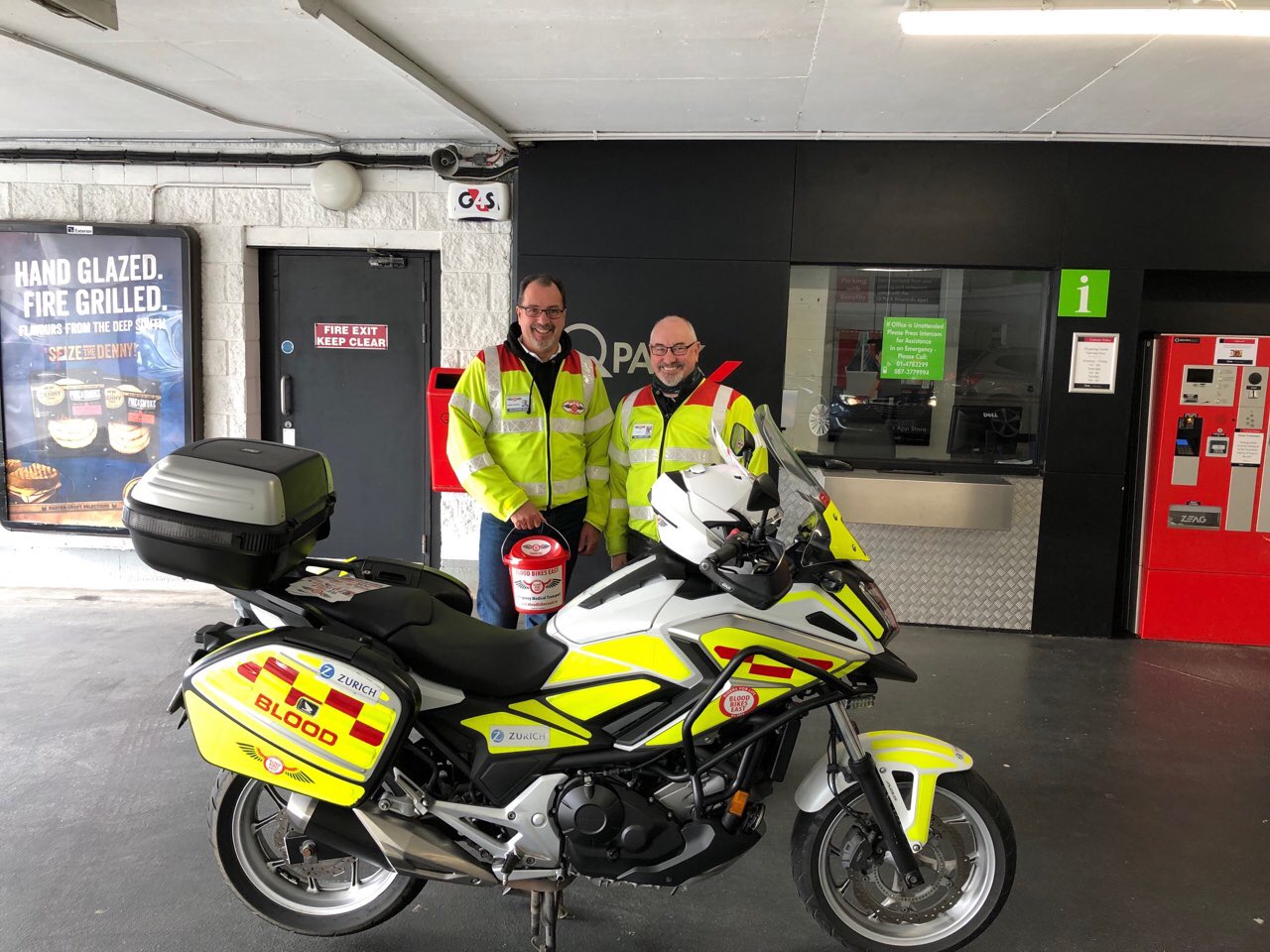
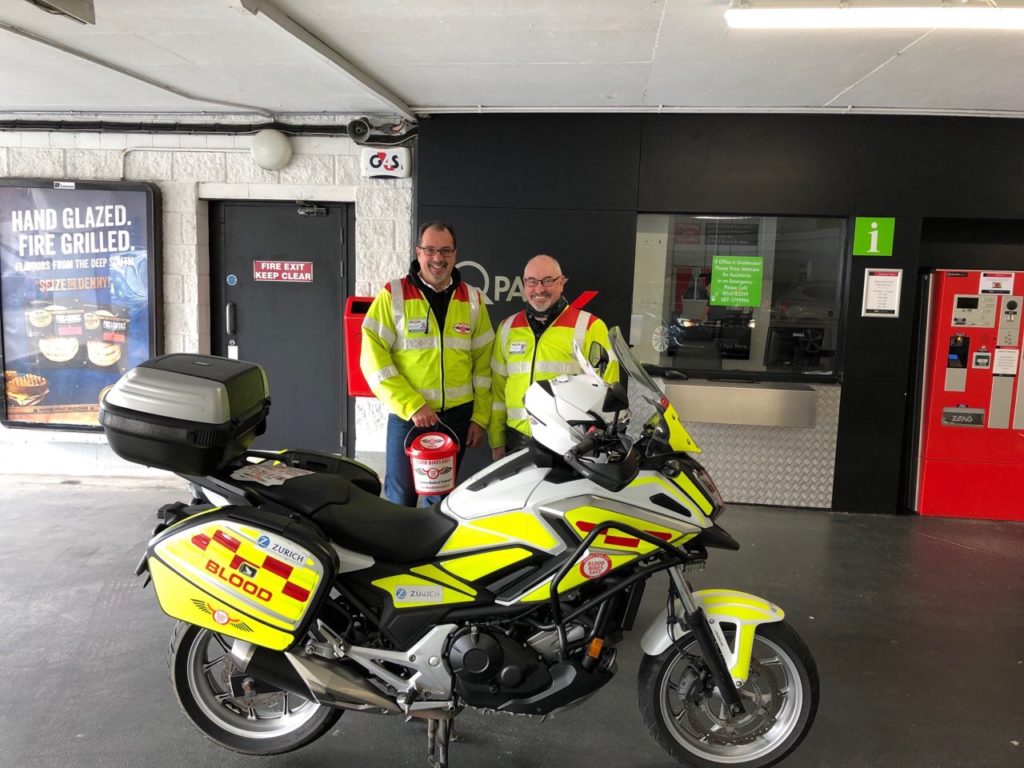

Aidan Collins, Communications Officer with Blood Bikes East tells us about the impact COVID-19 has had on their organisation. Established in 2012 Blood Bikes East is an Emergency Medical Transport Service. Staffed entirely by volunteers, they offer a free out of hours delivery service under SLA for 22 hospitals in the Greater Dublin area.
How has the COVID-19 emergency impacted Blood Bikes?
We have seen a big increase in demand for our services. Since the beginning of the year our cars have done over 35,000 miles – most of that in March. We have recently added an extra overnight shift to cope with the volumes of samples coming from the regional hospitals to the National Virus Lab in Dublin via linkups with the other Blood Bike groups.
We primarily run an out of hours service because all of our volunteers have day jobs but we have now added day shifts during this period providing support to Beaumont Hospital and St. Michael’s in Dun Laoghaire. We have also added an extra shift for a scheduled weekly collection – which often takes place in the middle of the night. Thankfully we have a wonderful group of trained volunteers and we have had no problems filling shifts!
Has COVID-19 impacted the organisation in any other way?
Our fundraising traditionally takes place through on street collections or bag packing in the supermarkets – two close contact activities that are off the table for the moment. We have moved our fundraising online by adding a button to our website and Facebook page. Our volunteers are also doing a great job raising money through their own social channels.
We are very lucky in Blood Bikes East to have the support of some great sponsors. Annesley Williams have given us a free 4×4 every year for the last 5 years while AXA Insurance covers the cost of insurance for our bikes. Maxol have recently come on board to cover the cost of petrol – our second highest overhead – for the duration of the emergency. Our other overheads continue to increase as the vehicles need an increased level of maintenance and parts due to the increased mileage so a regular income is more important than ever.
Have you needed to recruit more volunteers?
We have had over 90 requests from people looking to volunteer with us over the last few weeks which is great. Given we provide such in depth training for new volunteers, it hasn’t been possible to bring many new people on during this process. We’ve been lucky that we’ve had a few Garda bikers and motorbike instructors apply and have been able to take them on given they have advanced rider training already. We have invited anyone else who wants to volunteer to start their prep work for the advanced rider course which can take a lot of time so is perfect for this period. We’re sure a lot of our volunteers could use a break once this is over and we’re looking forward to welcoming new volunteers then.
And finally, as a busy volunteer with a family and full time job, how do you manage it all?!
I’m not going to lie – it has been fairly manic. Luckily my day job is a global role so I’m used to video conferencing and working odd hours so I’ve been able to share my expertise with the committee. I’m also lucky that we have such a great group of committed volunteers so I have been able to concentrate on communications and administration over the last few weeks and haven’t needed to take on a biking shift. Volunteering with Blood Bikes East, especially at a time like this, allows you to see the very best in people which has been such a positive during such a crazy time!


In extreme weather conditions we are reliant not just on local authorities and emergency services; but also on volunteer bodies such as Mountain Rescue, Irish Coast Guard, Royal National Lifeboat Institution, Civil Defence, First Responders, 4×4 Response Groups and many others that support our local communities in times of need.
There are many volunteer-led groups around the country that do great work to help those in need at these challenging times. As Volunteer Managers we need to ensure that we are looking after volunteers’ health, safety and welfare. This checklist will help you reflect on things you might consider when working with volunteers in extreme weather situations:
The right person for the right role – People often offer their services in times of needs like this, but we must ensure that we have the right person for the role. Volunteers need to be competent, as well as physically and mentally fit to carry out the task required of them. Quite often people think they can do more than they are actually able to do. Ensure that you have clear role descriptions to define the role of your volunteers.
Insurance – Does your insurance policy cover your volunteers when they are engaged in a hazardous area or programme? There may be additional risks not present normally. If the current volunteer role differs from what your organisation has been set up to do as outlined in your Memorandum and Articles of Association, you should check with your insurance company to ensure that volunteers are covered and that they will pay out in the event of an accident.
Rest and Recuperation – Volunteers can sometimes be over enthusiastic with their energy to support others at times of need. You might need to reconsider the length of volunteers’ shifts, reducing their length and ensuring volunteers do not push themselves too hard.
Expectations – Volunteers might want to solve all the problems caused by the extreme weather conditions and stay out in all weather conditions to do so, putting themselves at risk. Manage the expectations of volunteers in line with the policies and procedures of your organisation. Be realistic and ensure that your volunteers aren’t pushing themselves too hard.
Preparation, preparation, preparation – You can never have enough of it, that’s why good volunteer programmes carry out drills and practices year round to ensure that volunteers are trained and aware of what is expected of them when a severe weather condition comes along.
Welfare – Your concern might be about helping those who are most at need in our communities, but you can’t do that without volunteers. Your primary concern should be the welfare of your volunteers. Ensure they get hot refreshments and food. Be aware of those who insist they don’t need anything and want to battle on without refreshments or a break.
Mental Health – Lots of issues can present themselves at a time like this, all of which can take a toll on a volunteer’s mental health. You might be fine, but what about your volunteers? People experience things in different ways and it is often the quieter volunteer who needs the most attention.
PPE / Equipment – The onus is on you to ensure that your volunteers have all the Personal Protective Equipment (PPE) they need. That might include thermal hats, gloves, jackets and boots. You can’t expect people to have that equipment lying around at home. Maybe set up a pool of equipment to have for such situations. A Hi-Viz Jacket, for example, only serves one purpose and will not keep you warm. Do your volunteers need mobile phones? Do they have spare batteries? Do you use two-way radios? How long is their range? Is that range shortened by weather conditions?
Transport – Are volunteers using their own vehicles as part of their volunteering? Are they insured and roadworthy to do this? Remember even if you own a 4-Wheel Drive vehicle it doesn’t mean you can drive anywhere. You need to be experienced at driving safely, and your responsibility as a Volunteer Manager may be to ensure that your volunteers are trained to do so.
Sign in and Sign out – Before any volunteers go out on shift ensure that you have their emergency contact details, as well as details of any medical conditions you should be aware of. Do you have a process in place for them to sign out at the end of the shift if they are not returning to the base?